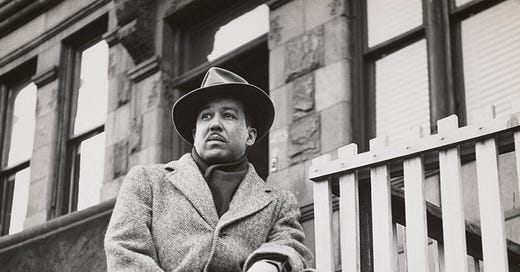“I am an invisible man.”
This is how Ralph Ellison’s Invisible Man begins—his protagonist unseen not because of supernatural forces but because the world refuses to acknowledge his full humanity. Published in 1952, Ellison’s novel was a revelation, exposing the layers of erasure that Black Americans endured in a society that preferred their working bodies rather than their thinking minds and feeling souls.
What’s wild is that it’s now 2025, but the dynamics Ellison wrote about still persist—not just in everyday life, but in the publishing industry itself. We have made incredible strides, yet we are still grappling—and rightly so—with questions like:
Who gets to be published?
Who gets to tell certain kinds of stories?
Who gets amplified—and who is erased?
The irony is this: Black writers, thinkers, and creators have always been here, shaping literature, publishing, and culture. Yet, just as Ellison’s protagonist is invisible in plain sight, so too are the contributions of Black authors—acknowledged in moments of urgency, celebrated when convenient, but still subject to cycles of visibility and erasure.
These are the questions I wrestle with as a literary agent, editor, and publishing strategist. I’ve seen brilliant works by Black authors and other marginalized writers struggle to gain visibility—not because their writing isn’t powerful or necessary, but in part because publishing is still overwhelmingly white, therefore it struggles to see past its own cultural understandings into what support authors of color and their audiences need to find each other.
In my latest blog post, I explore Ellison’s enduring relevance, how his work speaks to experiences in today’s publishing landscape, and what we can learn from the ongoing fight for visibility and inclusion in literature.
Click here to read the full piece.
Let’s Talk
Erasure isn’t just about being unseen—it’s about being deliberately overlooked.
What’s a book that changed the way you think about visibility and representation? Let me know in the comments.




My work on the Literary Lightworker as well as my life as a playwright is about the practice of preservation in order to avoid erasure. Love this piece! Mr. Ellison would be proud that you have lifted his name and masterpiece up before the world at this time indeed.
So so true, Jevon, about the elite white bubble of publishing - I know @otherwordy and @talkingwriting would be interested in connecting with you